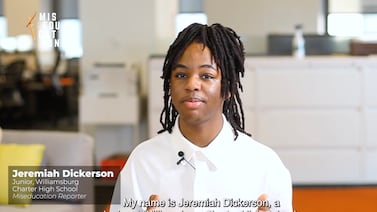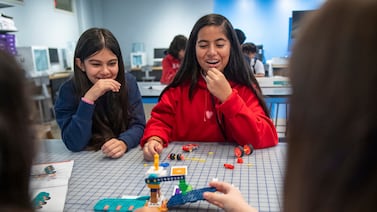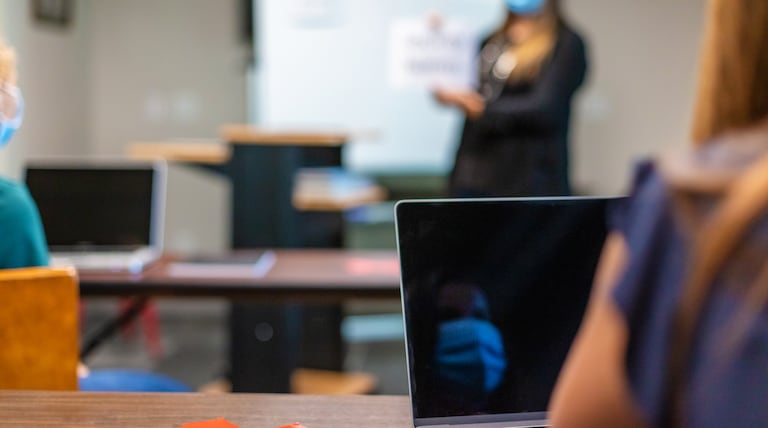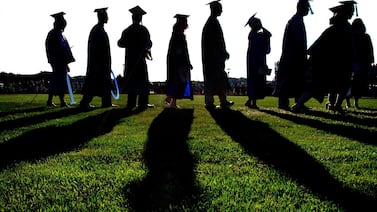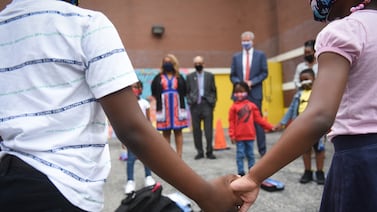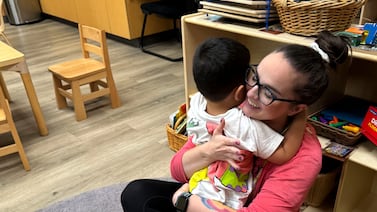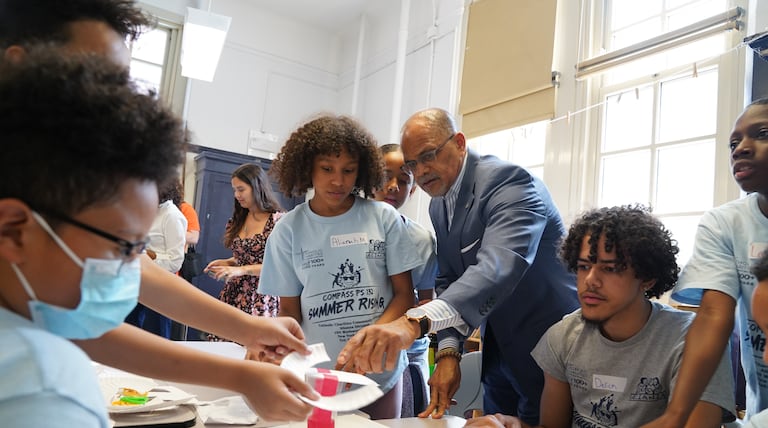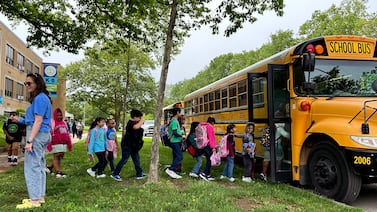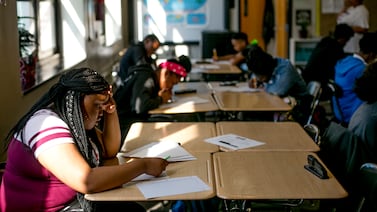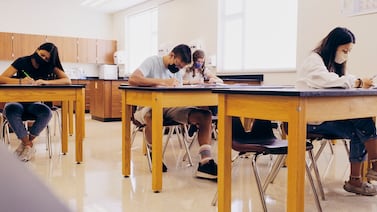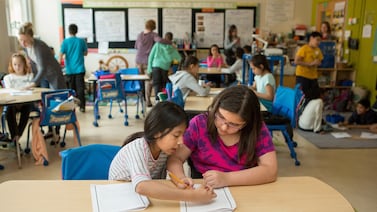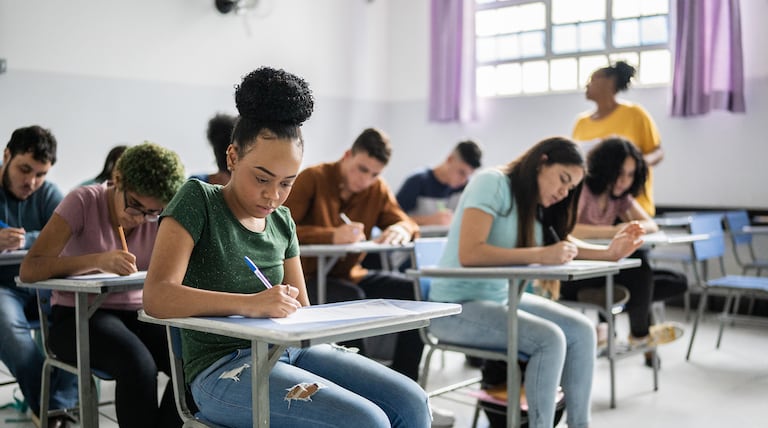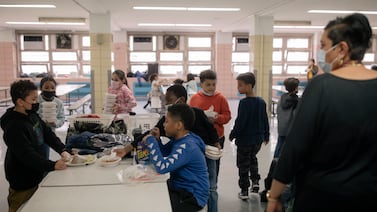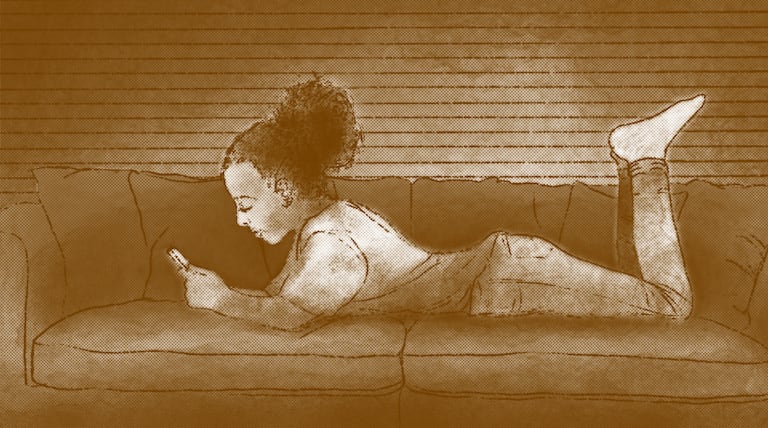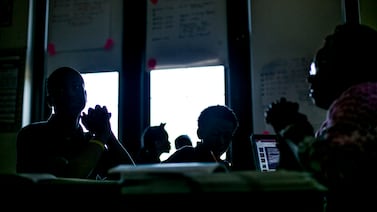COVID and Schools
Credit-recovery programs give students the chance to earn credits they need for the next grade or graduation. But do these second chances to pass give the system permission to fail?
Scores fell for both boys and girls, but girls’ scores fell more. The reasons why are not entirely clear.
The city spent millions of dollars on air purifiers in schools to combat COVID. But the devices should also help with pollutants like wildfire smoke.
Teachers don’t need to practice self-care. They need real change, Katie Hicks says.
Five years after the pandemic closed schools, some educators remain wistful for before times.
COVID closures left students behind and made school feel optional. They also ushered in a technological explosion.
The special legislative session made it look easy, but a timeline shows the embrace of school vouchers was never a foregone conclusion.
The full impact of the pandemic on high school graduation rates is still emerging. Students who were in elementary school when schools closed may need extra support now.
Four years after New York City overhauled its summer program to blend academics and recreation, lawmakers want to know if it’s working.
Schools are adding staff, offering new training, or emphasizing social and emotional skills. But educators say they need more help.
The new school year is here, see what’s new for you and your students around cell phones, reading, state testing and more.
Nearly half attend schools with high concentrations of poverty, while funding disparities undermine recovery from learning loss.
The change follows updated guidance from the Centers for Disease Control and Prevention.
A new analysis finds students are making up for lost learning, but some are being left behind. There’s still time for states and districts to act.
As of October, at least 90,000 food benefits remained unused in New York City, totaling at least $35 million in unspent funds.
Students have improved slightly in math achievement since fall 2020, but reading performance has remained stagnant after a significant drop.
Parents, schools, and community organizations say many families aren’t receiving the information they need to take advantage of the benefits.

